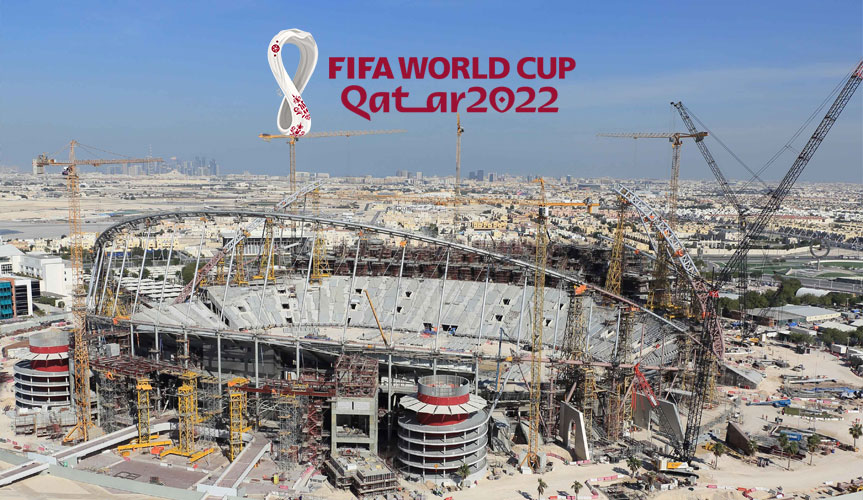Table of Contents
Fatma Al-Nuaimi, the director of communications for the organizing committee in Qatar, is happy and sad at the same time about the approaching World Cup. That’s how enthusiastic he is, he continued, and everyone else is, too. Seeing these was once just an idea on paper, but now it’s all coming to fruition.
As the first World Cup to be held in the Middle East approaches, Al-Nuaimi isn’t the only one feeling conflicting emotions. Because the rest of the planet isn’t convinced that even the most fan-friendly event in history will be held in Qatar, despite the fact that the country has had 12 years to prepare.
The Issue that First Comes to Mind
Boisterousness and intoxication are strongly discouraged in the conservative Islamic country; influenced heavily by Sharia law. Alcohol, homosexuality, and public shows of affection, on the other hand, are all strictly forbidden.
An uninspiring setting for a month-long festival that will attract thousands upon thousands of often raucous guests from all walks of life. To which Al-Nuaimi responds, “Patience, and an open mind.” Islam, after all, places great emphasis on hospitality.
With regard to such difficulties, the Qatari organizers are also working hard. Everyone would be welcome at the event, even though homosexuality is banned in the country and is subject to jail, according to Nasser Al Khater, the tournament’s organizing committee’s chief executive.
Is Qatar’s scorching climate going to be a problem?
There were many concerns about Qatar’s scorching summers. The country’s offer included a vow to use environmentally friendly stadium cooling technologies.
When it was relocated to November and December, even though it was a much cooler time of year than usual, the host country operations committee, or SC, worked to expand cooling technologies in an attempt at creating a lasting legacy for the event.
Saud Abdulaziz Abdul Ghani, also known as “Dr. Cool” by the SC, is a Sudanese-born professor of mechanical engineering at Qatar University. At the university’s College of Engineering, he’s a professor.
A combination of insulation (which keeps the cold airflow in and the warmer airflow out) and “spot cooling,” as Saud describes it, was used to cool the World Cup stadiums.

Preparing for a Massive Wave of Accommodations
FIFA, the tournament’s governing body, says it received well over 17 million requests for tickets to the 64 World Cup games throughout the initial 20-day buying period that wrapped up earlier this month.
Candidates will be notified about the status of their requests in early March and will be authorized to view an online portal to make arrangements for lodging spanning from five-star accommodations to campsites after they receive that notice.
Doha, Qatar’s capital and home to 2.4 million people, is expected to see an influx of 1.5 million tourists starting in mid-November. Accommodations for them have been acquired in high-rise hotels, two cruise lines will be anchored on the city’s waterfront, two private mansions have been made available.
Because Qatar is so small, a few of the 8 World Cup venues are well within 3 miles of each other, whereas the farthest are distanced by somewhat less than 50 miles.
A Chance to Celebrate
As a world cup sponsor, Budweiser will be selling alcoholic beverages during a fan festival along Doha’s Corniche waterfront promenade. Officials in Qatar, who have been urged aggressively by FIFA to expand the sale of alcohol, have yet to say if Budweiser items will be available for purchase at the stadiums or in other hospitality facilities.
Since many restaurants that are not attached to a luxury hotel or resort don’t serve alcohol, this rule may be modified for the World Cup.
Long-Term Benefits
With the potential to expand and contract, venues display an understanding of legacy issues, which will likely be adopted by many other event hosts in the future.
Once the World Cup is done, the architecture around the venues is designed to keep visitors coming back. There is a lot of potential for planning, development, project management, and facilities management services during the event.
Some significant contracts have already been signed, but the next few years will certainly witness an increase in smaller and medium-sized contracts as well.


